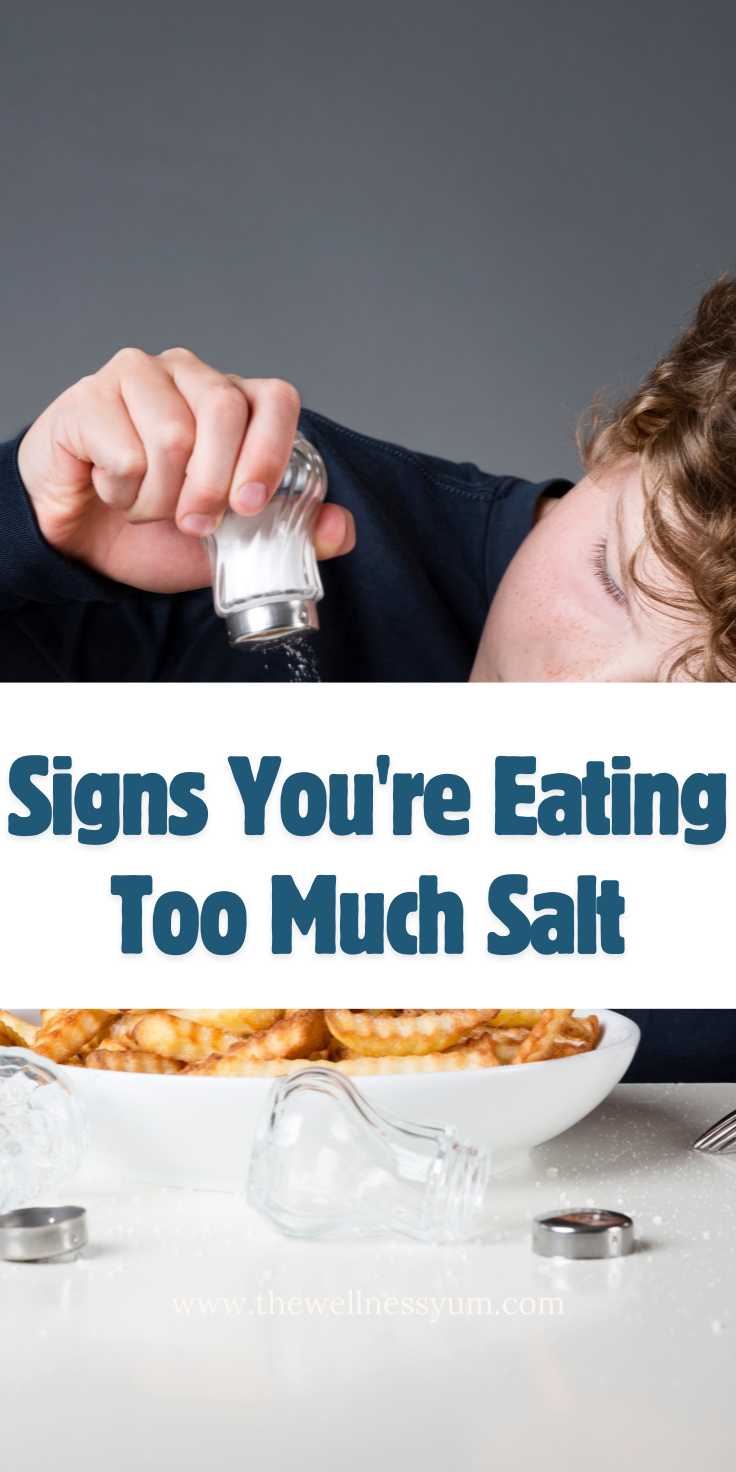Consuming an excessive amount of salt via food may be detrimental to one's general health. While salt is an essential component of each meal, it is important to keep an eye on how much you are eating at any one time. Here are some of the indicators that you are taking an excessive amount of sodium:

If you are in the habit of seasoning your meal with more salt from time to time, you may be taken aback by this one! According to new research published in the International Journal of Epidemiology, ingesting an excessive amount of salt via food may be detrimental to one's general well-being. An incorrect approach for eating and quantifying sodium, according to this research, might explain some of the counterintuitive results of previous studies. In the opinion of industry professionals, salt is a hidden component that is difficult to detect and quantify.
So it might be quite difficult for someone to estimate how much sodium they ingest throughout the course of a single day. The most accurate approach to evaluate sodium excretion is by urine. Scientists have found that using a spot test to assess salt consumption is a simple and straightforward process. This test would be used to determine the amount of salt present in a person's urine sample. The amount of sodium consumed, on the other hand, is likely to vary from day to day. As a result, the most effective method is to monitor salt levels over a period of many days.
As much as salt is something that cannot be avoided in food preparation, it is important to keep an eye on how much salt you are consuming. Consuming an excessive amount of salt may have major negative consequences for your health. It raises your blood pressure, and some research suggests that it may be connected to cognitive loss as well as other problems. According to the latest research, we should consume 6 grammes of salt every day on average. However, the average person consumes 7.2 grammes of salt each day.
Jump to:
1. You have a strong need to urinate often
When you consume too much salt, you will have frequent urination, which is a typical symptom. For the majority of the time, you may feel the need to wake up in the middle of the night to go to the bathroom. But it may also indicate the presence of other illnesses such as urinary tract infections (UTIs), type 2 diabetes, and an overactive bladder. Take a test to ensure that you know precisely what the problem is. The consumption of too much sodium, on the other hand, might be a contributing factor.
2. An insatiable need to drink
When you consume an excessive amount of salt, you may find yourself feeling thirsty all of the time. This occurs when meals with a high salt content disrupt the fluid equilibrium in your body. Drinking enough water is the most effective strategy to compensate for this. Your body is continuing to send you signals that it needs more water in order to restore salt equilibrium to your body's fluid balance.
3. Swelling in unexpected locations
Consuming an excessive amount of salt may result in swelling in many regions of the body. This might be the reason why you wake up feeling bloated the next day. It is possible to feel the swelling in the fingers and around the ankles. Edema is a kind of swelling that occurs when the body's tissues become swollen as a result of an excess of fluid. Edema is thought to be an indication of a more serious underlying health problem or a warning that you are ingesting too much salt in your diet. A simple answer to this problem is to reduce your salt consumption.
4. You find meals to be dull and uninteresting
Do you find yourself needing to season your meals with additional salt from time to time? Do you find meals to be bland and monotonous on a consistent basis? That's most likely because you're used to consuming an excessive amount of salt. Over time, your taste receptors get used to the flavour, which is why you feel the need to season your meal with more salt.
5. Mild headaches on a regular basis
Is it common for you to have slight headaches every now and then? It's likely that these headaches are caused by dehydration in this case. Consuming an excessive amount of salt is likely to result in headaches that last for brief periods of time owing to dehydration. Drink plenty of water to get rid of your headaches.
6. You have a strong need for salty meals
When your taste receptors get used to salty sensations, they begin to want them on a regular basis. You suddenly have a strong desire to consume salted peanuts, chips, and other salty snacks.





Leave a Reply